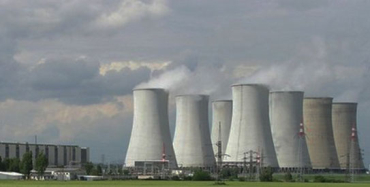 | « Back to article | Print this article |
India's rising dependence on energy imports a concern
The draft Approach Paper for the Twelfth Five-Year Plan, prepared by the Planning Commission, makes several interesting observations about India's energy sector and its problems.
You may like to compliment the Planning Commission for its candour, but it is likely that such forthright views have emerged simply because the government's apex think tank realises it is helpless about the rot that has set in.
For instance, it paints a scary scenario of the Indian economy's rising dependence on energy imports.
It is scary because the draft Approach Paper offers little hope of any major policy correctives in the near future and yet plans to set a target of nine per cent annual economic growth during the Twelfth Plan period (2012-17).
Click NEXT to read more...
India's rising dependence on energy imports a concern
Now consider how India's dependence on energy imports would rise in the next five years.
With respect to oil, the share of imports would go up from 76 per cent in 2010-11 to over 80 per cent by the end of 2016-17.
The scenario gets worse for natural gas and liquid natural gas, with import dependence in this period likely to go up from 19 per cent to over 28 per cent.
Even for coal, the dependence on imports would rise from 20 per cent to 22 per cent.
Click NEXT to read more...
India's rising dependence on energy imports a concern
Two, this can be a major drag particularly in a situation in which domestic pricing of energy products is not market-determined.
In other words, any upward movement in international prices will adversely affect the viability of energy-intensive projects. It also strains the government's finances in the form of higher subsidies.
A lot has already been said about the huge distortions caused by the current petroleum product price regime.
Click NEXT to read more...
India's rising dependence on energy imports a concern
However, it breaks fresh ground while referring to the coal sector.
"Coal prices are theoretically decontrolled, but in fact they are adjusted only in consultation with the Ministry," says the draft Approach Paper.
This is perhaps for the first time that an official document has brought out the gap between the government's approved policy and its practice.
This is true of the oil sector also, but nobody acknowledges it officially. Even though petrol prices are decontrolled, oil marketing companies still do not raise the prices without obtaining the government's comfort.
Click NEXT to read more...
India's rising dependence on energy imports a concern
That it has been happening for some time is common knowledge. Now, even the Planning Commission has acknowledged it in an official document.
Even with respect to the electricity sector, the draft Approach Paper for the Twelfth Plan makes similar observations, bringing out in the open the gap between what the policy is on paper and what really happens on the ground.
"Electricity to the consumer is also under-priced. Electricity prices are set by State regulators, but most regulators have shown a tendency to hold back tariff adjustments, typically under political pressure.
Click NEXT to read more...
India's rising dependence on energy imports a concern
The obvious outcome of such a practice is that power tariffs are lower than what they ought to be for most categories of consumers, even after excluding farmers who are subsidised in any case.
This deals a big blow to the finances of power distribution companies.
On the question of adding more power generation capacity during the Twelfth Plan, the Paper tries to set an ambitious target of creating 100,000 Mw during the next five years, compared to the target of 78,700 Mw in the Eleventh Plan.
Click NEXT to read more...
India's rising dependence on energy imports a concern
So, why should the Planning Commission set a Twelfth Plan target that does not look realistic? That is where the amusement starts.
With more than 80,000 Mw of new power capacity already under construction, "it may be reasonable to target 100,000 Mw of new power capacity during the next Plan", says the Approach Paper.
What would be the break-up of this new target? As much as 28,000 Mw of capacity would come from projects that were supposed to be completed in the Eleventh Plan, but are now expected to be completed in the first two years of the Twelfth Plan.
Click NEXT to read more...
India's rising dependence on energy imports a concern
That means the Planning Commission is effectively setting a target of 72,000 Mw in the next Plan, lower than the original target of 78,700 Mw set for the Eleventh Plan.
That indeed shows realism and pragmatic thinking on the part of the Planning Commission.
Whether that meets India's rising electricity demand in the next five years is of course a different matter.








